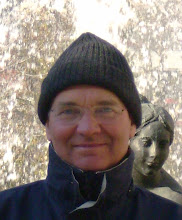
Road deaths have also fallen by more than 400 to 2,610, about 5 times the usual annual decrease, although deaths of cyclists have increased. New car sales have slumped, over 30% down. In Bristol and other cities congestion has decreased by 5% (in terms of time wasted in congestion). Traffic on urban roads has decreased by about 1% compared to the previous year. The expectation must be that traffic levels will continue to decline as the recession develops, due to declining employment and discretionary expenditure in general being cut back.
Most of which is good news as far as I'm concerned, except of course for the increased death rate for cyclists. That is likely to reflect a sudden influx of novice cyclists who haven't yet developed survival strategies (like jumping red lights) to the extent of experienced cyclists. But leaving that aside, things are looking good from an environmental perspective. Of course the recession won't last forever but it gives us a breathing space to explore the potential for reducing our car dependence.
Yet Bristol City Council are still wedded to transport priorities based on the assumption that traffic growth will continue relentlessly into the future. Strategies for accommodating traffic growth like Bus Rapid Transit and Congestion Charging must be called into question. Much of the financial "justification" for public transport subsidy, such as the proposed expenditure on BRT infrastructure, is based on the time savings accruing to motorists as a result of reduced congestion. But if congestion is reducing anyway......




4 comments:
Rising unemployment and personal cost-cutting are undoubtedly factors in this, as you say, but could we be seeing signs of a change in attitude and more sensible choice-making when choosing where to live and work?
SP, I think you're right that changing attitudes are a factor, but I don't think on their own they will have an impact. A handful of people giving up using cars just makes room for others to use cars more, especially at peak times.
I think we need to seize the chance to cut back on road capacity for cars to ensure than the current reductions in car use can't be reversed when (if?) economic growth returns.
A classic example of such an approach would be to close Prince Street Bridge to motor traffic so reducing capacity for car commuting in line with reduced demand while at the same time creating a really attractive corridor for walkers and cyclists.
yeah sounds great - you try telling the car loving public that they can't use the bridge or are you just happy to snipe from the sidelines? even the current scheme has been attacked - even by you! P
P, what are you trying to say? I snipe from where I am. Where else could I snipe from?
Are you implying that the council technocrats don't have the balls to tell car drivers they can't use the bridge? That's how it looks to me too.
Would I do it in their position? Well, I wouldn't be in their position in the first place because I wouldn't make the compromises they have made to be where they are.
However I suspect a complete closure to motor traffic wouldn't have got much worse publicity than the partial closure.
Post a Comment